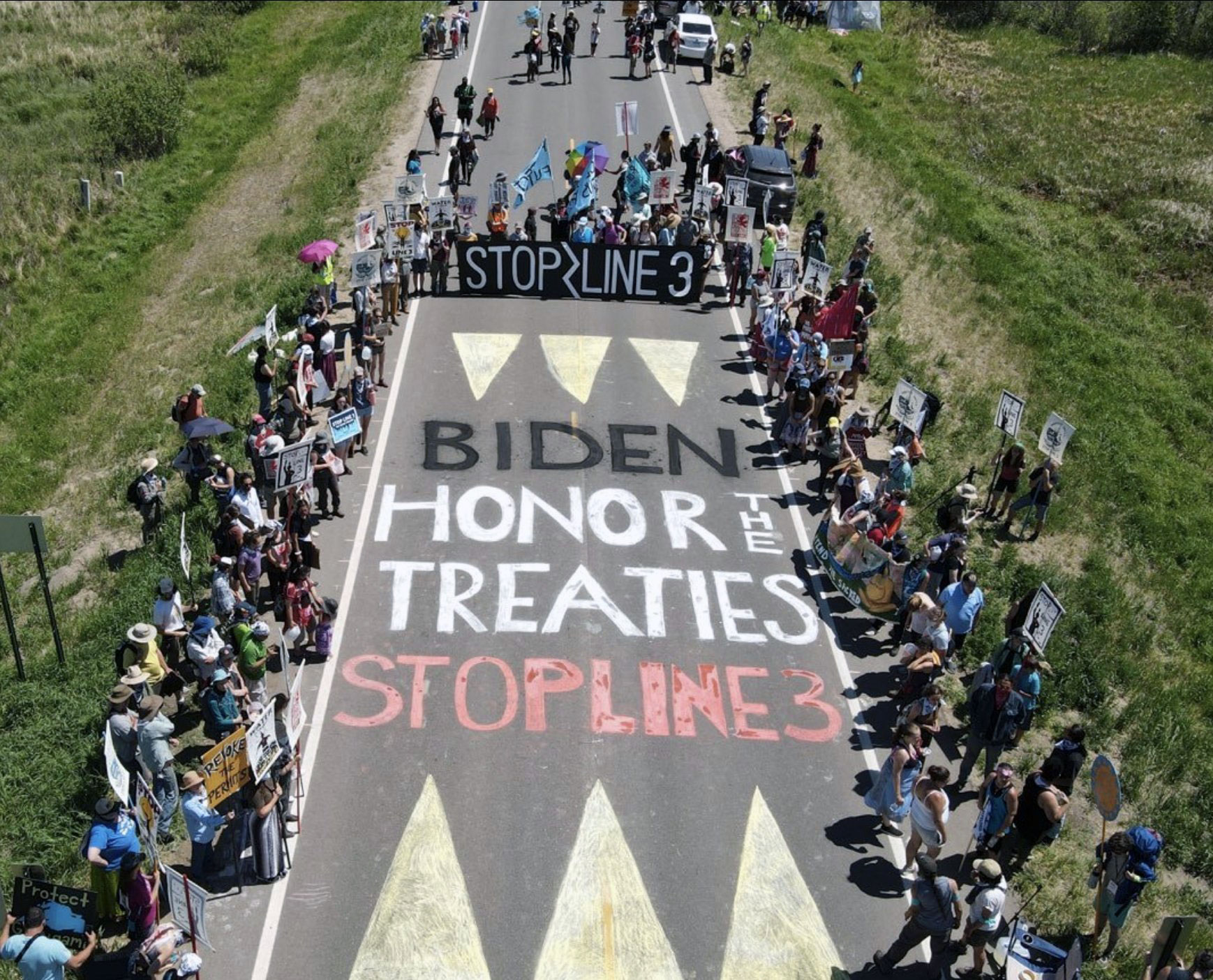The landmark release of the Intergovernmental Panel on Climate Change (IPCC)’s Sixth Assessment Report in August sounded the alarm for the global community, confirming ‘unequivocally’ that human influence has warmed the atmosphere, ocean and land. Furthermore, the new report made clear that human-influenced warming, primarily the burning of fossil fuels and deforestation, has initiated an irreversible impact on climate systems, with effects from melting glaciers and rising sea levels to be felt over the coming centuries or even millennia.
The increasing severity of climate impacts, such as extreme heat, precipitation and drought, have been evidenced all across the globe over the past years and the report warns that these impacts are poised to get worse if greenhouse-gas emissions continue. Unless there are immediate, rapid and large-scale reductions in greenhouse gas emissions, limiting warming to 1.5°C or even 2°C will be beyond reach.
RAN has been calling on corporate targets to phase out fossil fuel funding and adopt policies respecting Indigenous rights for years. Now, this most recent report underscores our demands, explicitly establishing the need to protect Indigenous Peoples’ rights in order to address the climate crisis.
Through our Community Action Grants (CAG) Program, we continue to support the fight for Indigenous rights, especially as violations ensue on the grounds of fossil fuel infrastructure construction. Over the last few years and more intensely this summer, RAN distributed resources in addition to staff time and expertise to support remarkable grassroots efforts aimed at stopping the construction of Enbridge’s Line 3 tar sands pipeline, bisecting unceded Anishinaabe lands in Northern Minnesota.
Line 3 is the one of the largest tar sands pipeline projects to be proposed in North America, estimated to move up to 915,000 barrels of oil a day from Alberta to Wisconsin through Minnesota. The pipeline crosses more than 200 bodies of water, including lakes, wetlands, and rivers, endangering freshwater resources and the pristine lake country of northern Minnesota where Native Americans harvest wild rice and hold treaty rights. A critical component of Indigenous resistance to the Line 3 pipeline is that it threatens treaty lands where tribal members retain the rights to hunt, fish, gather, hold ceremony, and travel.
The frontline Indigenous-led Line 3 resistance has been met with violent repression, increased militarization, and sustained legal battles, all while the construction of the pipeline violates human and treaty rights. This is unacceptable on many levels, but especially in light of the gross human rights violations and continued disregard for Indigenous treaty rights. The Line 3 pipeline has the climate impacts of 50 coal fired power plants, annually. When the IPCC report and the International Energy Agency have named no new fossil expansion as a critical component of a livable climate, Line 3 is the exact wrong project at the wrong time.
That is why our CAG program has supported grantees and initiatives actively working to resist the pipeline and bring awareness to its current and prospective detrimental effects on people and planet. Meet some of our grantees and learn more about these initiatives to resist Line 3.
Meet the CAG Grantees
The Giniw Collective
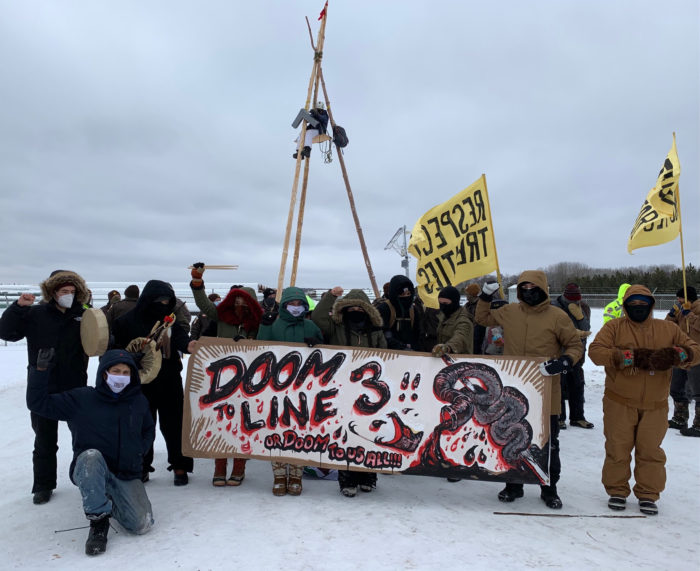
The Giniw Collective is a grassroots, frontlines effort that is Indigenous women-led to protect Anishinaabe territory from the destruction of Enbridge’s Line 3 tar sands project, through trainings, community outreach and education, mobilizations and relationship building within the broader movement. The collective was started back in the summer of 2018 in response to the proposed Line 3 project and has been working to protect treaty rights of the Anishinaabe, as well as sacred wild rice and other food sources, medicine, diverse ecosystems, and wetlands and lakes throughout the territories. They are also working to protect communities of color that are disproportionately impacted by health impacts and increased violence against women associated with an increase in fossil fuel infrastructure.
The Gitchigumi Scouts
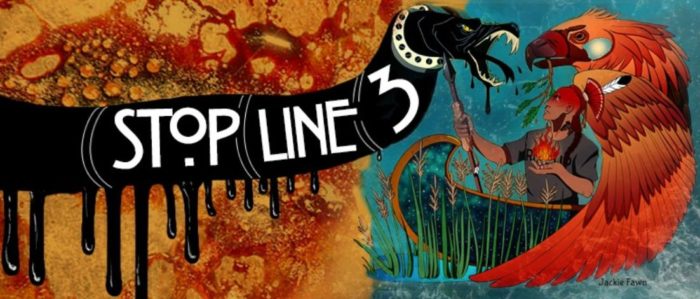
The Gitchigumi Scouts, is a frontline, Anishinaabe-led organization founded on the Fond du Lac Reservation, that is supporting resistance to Line 3 pipeline construction, through camps, actions, mobilizations and patrols carried out by Gitchigumi Scouts members using four-wheelers to scout and check for pipeline related activity on their land. They also help coordinate various aspects of community support and mutual aid, with a key focus being around responding to the Missing and Murdered Indigenous Women crisis and its connection to the construction of pipelines and other fossil fuel projects that often brings an influx of male workers to rural areas near small towns and reservations. Members of the Gitchigumi Scouts formed the frontline Camp Migizi in 2021.
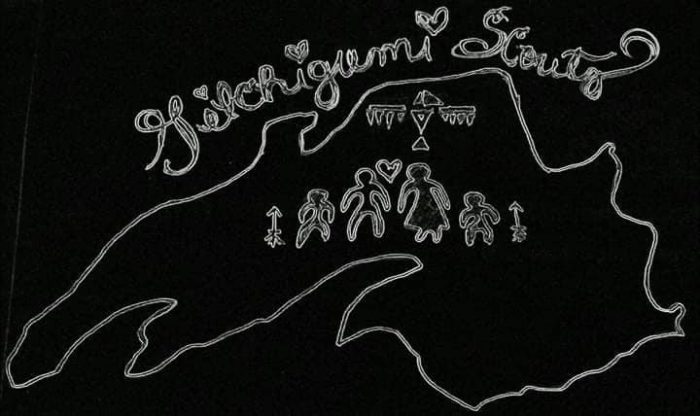
Indigenous-led Initiatives to Stop Line 3
Treaty People Gathering
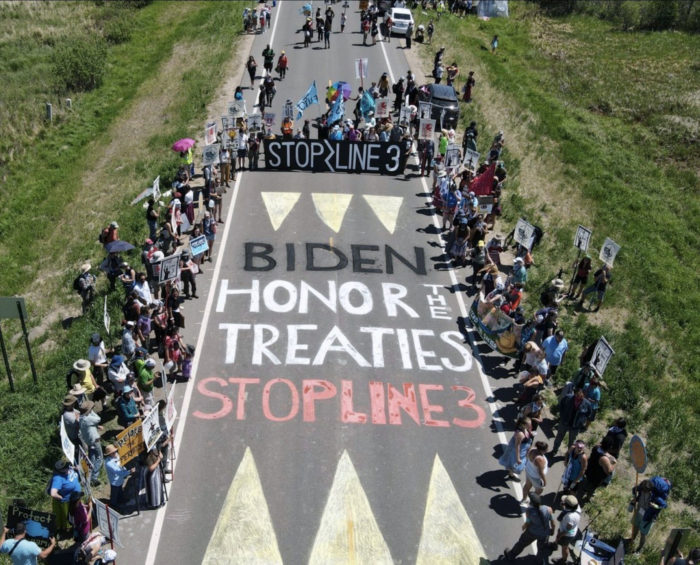
Treaty People Gathering: In June 2021, a broad coalition of dozens of community based organizations and NGO partners responded to the call to action from Indigenous frontline leaders, coming to the frontlines for the Treaty People Gathering. Funding from RAN supported community outreach and education, communications work, food, supplies, and lodging and transportation costs as needed for this critical movement moment calling on political leaders to do the right thing, as recently happened with the Biden Administration canceling the Keystone XL pipeline, and immediately stop construction of the Line 3 pipeline to protect Native rights and lands, invaluable waterways and the climate.
Standing Rock Prayer Run
Standing Rock Prayer Run: In 2016, connected with the establishment of the Sacred Stone Spirit Camp on the northern borders of the Standing Rock Sioux Indian Reservation, Indigenous youth organized a prayer run relay from North Dakota to Washington, D.C. to highlight their resistance to the Dakota Access Pipeline. Now with the urgent Indigenous-led efforts in resisting the Line 3 pipeline in Minnesota, Standing Rock Youth Runners organized another long-distance prayer run, going from North Dakota to Minnesota over 11 days. The goal of the project was to raise more awareness and show solidarity and the intersectionality between Indigenous-led resistance to the Dakota Access and Line 3 pipelines. The Standing Rock Youth Runners and their supporters also held healing and prayer circles among many of the stops they made in solidarity with the Line 3 camps. Videos of these efforts can be viewed here.
Red Road to DC
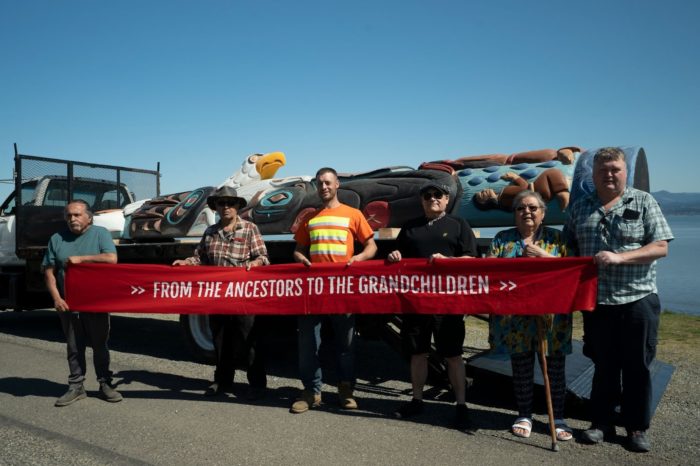
Red Road to DC project, executed over the summer, was a Native-led coast-to-coast totem pole journey with ceremony that stopped in sacred places endangered by fracking, mining, dams, oil and gas transport, and other extractive industries. The journey passed through the Anishinaabe lands impacted by the Line 3 construction and ended in Washington, D.C. with the public gifting of the totem pole to Representative Deb Haaland at the Department of Interior, the first Native American in that role.
What’s next
While there has been an outpouring of support and solidarity for the Indigenous-led resistance against Line 3, the pipeline construction is completed with the aim of having oil flow in the next couple weeks. Thousands of community members in Minnesota and across the country have been trained in Treaty Rights, following Indigenous leadership and Direct Action. But there is still an opportunity to raise awareness of the gross human rights violations and advocate for the need to phase out fossil fuel infrastructure immediately.
The movement resisting Line 3 has grown and will continue to exert pressure on the Biden administration to honor treaty rights, reminding the administration of its commitment to support Native Americans. RAN and key players in the climate space are also calling for banks to defund Line 3 and invite you to take action here. RAN is following the leadership of Giniw Collective, Honor the Earth, and additional frontline camps with First People’s Worldwide, and to document and expose the systematic violation of human rights.
The sustained focus on Line 3 can serve as an example of why we need to see the phase out of pipeline construction immediately.
